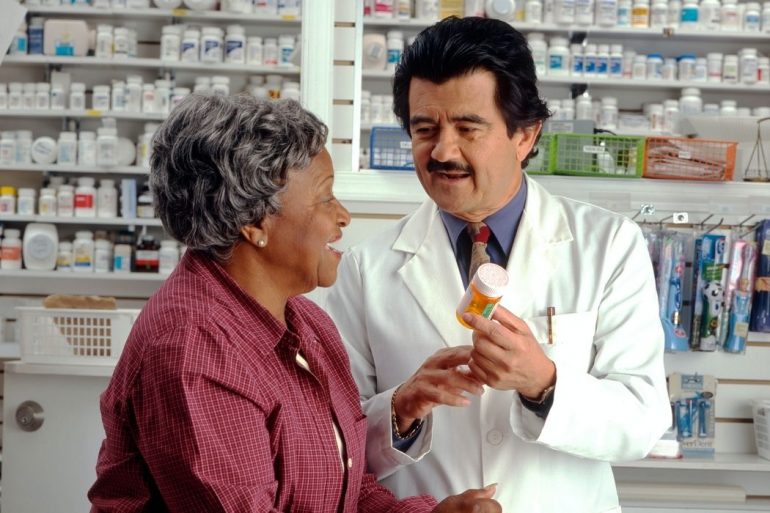Medtech startup FGC Health has acquired Pharmacy Access Solutions Inc. (PASI) for $5.1 million CAD ($4 million USD). FGC intends to integrate PASI’s solutions into its own platform to help Canadian independent pharmacies automate their prescription systems, and improve how they handle inventory.
The acquisition is not FGC’s first as the company drives toward becoming a leading consumer health services platform. Since 2020, the startup has been on a tear acquiring pharmacies, medical clinics, and an EMS service. The PASI acquisition closed on February 3.
FGC’s proprietary open-source platform includes a prescription automation system, and an inventory optimization solution.
“Our job is really to take PASI, and make it available ubiquitously across the country.”
– Dalbir Bains, FGC
Founded in 2006, PASI provides a number of different solutions for pharmacists, as well as product integration with pharmacy management systems and other electronic healthcare technologies. PASI will continue to operate as a stand-alone operation with PASI’s eight employees joining FGC. PASI’s owners will stay on for a two-year period during the transition.
Dalbir Bains, co-founder and CEO of FGC Health, told BetaKit that margins for independent pharmacies are becoming tighter as wholesalers scale-up and push more of their costs onto the independents. Bains contended that the independents are typically seeing a five percent loss in market share annually. “That doesn’t bode well for the businesses over the next couple of weeks,” he observed.
Bains called independent pharmacies an essential part of the Canadian healthcare system, noting that about 50 percent of all prescriptions get filled through independents. Bains said he looked at the trends carefully, and wondered with his own experience as an owner-operator of pharmacies what he could do to give the independents a better future.
“The acquisition of PASI was really the first step for us,” Bains said. “We really looked at what technology needs independent pharmacies have today, and can those needs be met affordably. When we started to look at solving that problem we started to look at how chains had invested heavily into tech 15 years ago using the same product, PASI, to give themselves a modern position with consumers.”
Now with FGC, PASI will move away from servicing chains and is shifting its focus to independents, giving the latter the same opportunities as the chains. Bains noted that PASI’s programs are already installed in 400 independent pharmacies out of Canada’s 4,000.
“Our job is really to take PASI, and make it available ubiquitously across the country, and hopefully get into as many of the 4,000 pharmacies that there are in Canada, and then really see how their revenue picture is going to change due to the introduction of our digital platform,” Bains said.
PASI’s software integrates with pharmacy management systems, point of sale systems, electronic medical records, and financial accounting software. The startup assists pharmacists with disease management, patient assessments, clinical professional services, and many other patient-focused interventions.
PASI claims that its goal is to reduce administrative requirements, allowing pharmacists to become more efficient, and enabling them to focus on patient healthcare needs.
Founded in 2019, FGC had a vision about building technology similar to PASI’s – at the time it didn’t know of the existence of PASI. As the startup began working on its platform in 2020, it found more challenges than expected.
“We wondered if there could be a better way,” Bains recollected. The CEO said he went online and began doing keyword searches for the software FGC was attempting to build. “I typed in pharmacy automation, inventory optimization, and – boom – up comes PASI,” Bains recalled. “That’s when we decided to go down the path of buying PASI instead of building our one internal suite of products.”
Before he began FGC, Bains co-founded Amenity Health Care, a string of 32 retail pharmacies in western Canada in 2013. TorQuest Partners, a Canadian manager of private equity funds, bought Amenity Health Care in 2017 for an undisclosed price.
RELATED: As online pharmacy space heats up, Toronto startup launches “Shopify for pharma” platform
Since FGC began, it’s been making its own acquisitions, beginning with a pharmacy with two locations in Calgary in 2020. In 2021, FGC picked up another pharmacy in Toronto, a home-care facility in Winnipeg, and two pharmacies and two medical clinics in Ontario. The company capped its acquisition spree with an EMS service in Leduc, Alberta.
As the startup has acquired, it’s grown both in people and revenue. FGC has 15 people in its head office, 80 staff within its pharmacies and medical clinics, another 100 in home care, and 200 paramedics with the EMS service. The startup boasts $30 million in annual revenues.
“We’ve done that in 18 months while investing in corporate office costs and technology,” Bains said.
That’s not too shabby in a space crowded with online contenders ranging from Telus Health with its virtual pharmacy solution; and PocketPills, which enables patients to fill and manage prescription medications online, keep a record of their medication history, and find the cost of a prescription before they fill it; to digital pharmacy startup Pillway, which has received a $5 million minority investment from Well Health.
For his part, Bains doesn’t see competition coming from the digital space; he maintained that other startups aren’t doing pharmacy automation and inventory optimization. Rather, it’s the large brick-and-mortar chains that FGC is taking on with PASI.
As FGC gets ready to launch PASI into as many independent pharmacies as possible, Bains said the startup is in the midst of bringing on a private equity tech partner to backstop the next stage of growth. He noted they are going through due diligence currently, and he hopes to announce that financing soon.
“That will give us the rocket fuel to put behind the PASI business, which is our main priority, and really extend it into Canada, and the US,” Bains said.


